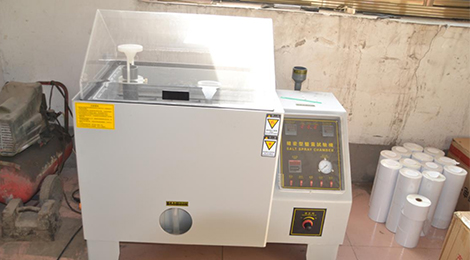OEM Connector Bolt Fasteners for Reliable Automotive and Industrial Applications
Oct . 15, 2024 17:19 Back to list
OEM Connector Bolt Fasteners for Reliable Automotive and Industrial Applications
Understanding OEM Connector Bolts Their Importance and Applications
In the realm of manufacturing and automotive engineering, the term OEM, or Original Equipment Manufacturer, holds significant weight. It refers to companies that produce parts and equipment that may be marketed by another manufacturer. One critical component within this domain is the OEM connector bolt. These bolts play a vital role in ensuring the functionality, safety, and reliability of various products and systems.
What are OEM Connector Bolts?
OEM connector bolts are specialized fasteners designed to secure electrical connectors in place. They come in various sizes, materials, and designs, tailored to the specific requirements of OEM products. These bolts are crucial in applications where electrical connections are made, such as automotive systems, industrial machinery, and consumer electronics. Their importance cannot be overstated, as improper fastening can lead to connection failures, resulting in malfunctions or even hazardous situations.
Materials and Design
The choice of materials for OEM connector bolts is primarily influenced by the environment in which they will be used. Common materials include stainless steel, aluminum, and high-strength polymers. Each material offers distinct advantages, such as corrosion resistance, weight reduction, or thermal stability. For instance, stainless steel bolts are often used in automotive applications due to their excellent strength-to-weight ratio and resistance to rust and corrosion.
The design of these bolts is also paramount. Many OEM connector bolts feature specific head shapes and thread types to ensure compatibility with the connector and ease of installation. For example, some bolts may have a hex head for simple tool access, while others may use a torx or socket design to prevent stripping. This attention to detail ensures that connectors remain secure even under vibration or mechanical stress.
Applications of OEM Connector Bolts
oem connector bolts

OEM connector bolts are versatile components found in a variety of applications. In the automotive sector, they are used to secure wire harness connectors, ensuring that critical electrical connections remain intact despite the rigors of driving. This reliability is essential for vehicle safety systems, such as airbags, anti-lock brakes, and engine management systems.
In industrial machinery, OEM connector bolts help secure connections in complex electrical control systems. These systems often require high reliability to prevent operational downtime and maintain productivity. The failure of a single bolt could lead to extensive repairs and significant financial loss.
Moreover, consumer electronics also rely on OEM connector bolts. In devices like smartphones, laptops, and televisions, these bolts secure connectors that link hardware components, ensuring performance and user safety. The compact design of these products necessitates precise engineering and high-quality fastening solutions, further underscoring the importance of OEM connector bolts.
Quality Assurance and Standards
Given their critical role, OEM connector bolts must adhere to strict quality standards. Manufacturers often follow guidelines set by organizations such as ISO (International Organization for Standardization) and SAE (Society of Automotive Engineers). These standards ensure that the bolts meet specific criteria for strength, durability, and safety. Rigorous testing, including tensile strength and corrosion resistance assessments, is commonplace to verify that the bolts can withstand demanding conditions.
Conclusion
In conclusion, OEM connector bolts are essential components in a wide array of industries, particularly in automotive and industrial applications. Their design and materials are crucial for ensuring reliable and secure electrical connections. As technology continues to evolve, the demand for high-quality OEM connector bolts will only increase, making them a cornerstone of modern manufacturing processes. Understanding their importance helps in appreciating the intricacies of design and engineering that go into the products we rely on every day. Whether in your car, your home, or your workplace, these seemingly small fasteners play a critical role in keeping the technology we use functioning safely and effectively.
Latest news
-
High-Quality Panel Stud Bolt Reliable Panel Stud Bolt Factory & Suppliers
NewsJul.08,2025
-
High-Precision Fine Thread Locknuts Manufacturer & Supplier Custom Solutions
NewsJul.08,2025
-
PH Imperial Stud Bolt – High Strength Fasteners from Leading Supplier & Factory
NewsJul.07,2025
-
High-Quality Allen Wrench Bolts Leading Factory, Company & Suppliers
NewsJul.07,2025
-
Wholesale Ball Stud Bolt - High Quality Supplier & Factory Price Reliable Wholesale Ball Stud Bolt Company
NewsJul.06,2025
-
High-Strength Alloy Bolts Manufacturer & Supplier Quality Alloy Fasteners Factory
NewsJul.06,2025
